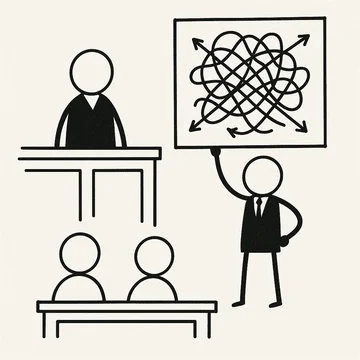
Last week, Judge Noreika issued an interesting oral order regarding a claim construction dispute that was briefed—haphazardly, apparently—in the parties' summary judgment papers.
She criticized the briefing, ordered the parties to meet-and-confer and file ordinary claim construction briefing, and threatened sanctions if the parties don't try hard enough to reach agreement:
ORAL ORDER − In their summary judgment papers, the parties include arguments that either three or four additional claim terms must be construed by the Court. The parties' arguments are disjointed, do not focus on the intrinsic evidence and do not demonstrate any real understanding of what that other side's construction is. Thus, IT IS HEREBY ORDERED that, on or before 5:00 PM on October 6, 2021, the parties shall exchange with each other their proposed constructions for the claim terms they believe the Court must construe. Thereafter, the parties shall discuss the proposals to identify any areas in which they agree. By noon on October 11, 2021, the parties shall inform the Court what efforts were made to find agreement and whether any agreement was reached. (If the parties' efforts evidence the lack of consideration seen previously (discussions of 20 minutes and 13 minutes regarding 18 terms), the Court will consider appropriate sanctions). For any terms for which agreement has not been reached, on or before November 5, 2021, the parties shall submit a joint brief (of no longer than 20 pages total) that conforms to the Court's standard claim construction briefing format. The joint brief shall focus the Court on the intrinsic evidence supporting each side's proposed construction and shall NOT incorporate by reference or refer back to other briefing that has been submitted in this case. ORDERED by Judge Maryellen Noreika on 10/5/2021. (dlw) (Entered: 10/05/2021)
Evertz Microsystems Ltd. v. Lawo Inc., C.A. No. 19-32-MN-JLH, D.I. 402 (D. Del. Oct. 8, 2021).
This is far from the first time that Judge Noreika has warned parties that they must make a good-faith effort to meet-and-confer about claim construction. Judge Connolly has done so as well. At this point it's clear that parties are well-served to be careful to have real, thorough and lengthy (if possible) meet-and-confers about claim construction before briefing the issue.
It's also might not be a bad idea to keep track of the time spent meeting and conferring about claim construction, just in case it comes up down the line...
If you enjoyed this post, consider subscribing to receive free e-mail updates about new posts.






